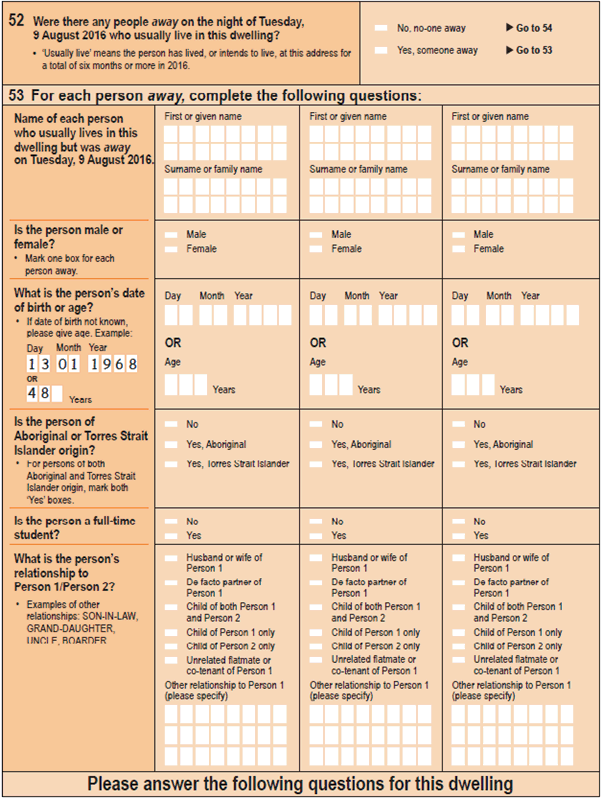FAMILY RELATIONSHIP (AND SOCIAL MARITAL STATUS)
Collection of data on this topic provides information on family and household relationships for people living in private dwellings. Information gathered from the questions on the relationship of each person to the family or household reference person enables Census data to be output for households and families. Family relationship data is critical in understanding trends in household and family composition and also how changes in the wider Australian society affect families.
Data collected on this topic enables classification of people according to their social marital status, which makes it possible to examine de facto and registered marriage couples in Australia on a comprehensive basis.
BACKGROUND
A question on relationship has been included in every Australian Census.
In the 1986 Census, family coding was undertaken for the first time for people living in caravan parks or on boats in marinas. Previously, these locations were treated as non-private dwellings and each occupant was given a personal form to complete, and at that time no information was collected about their household or family relationships. From the 1996 Census, family coding was undertaken for people living in self-contained units in retirement villages and dwellings in manufactured home estates.
Since the 1996 Census, the ABS has output information regarding same-sex couples collected from the relationship question.
Family and household relationship is collected not only in respect of all persons in the dwelling on Census Night (through Question 5) but also in respect of usual residents absent on Census Night (through Questions 52 and 53). This is so that the household from which those people are absent can be correctly classified by household and family composition.
QUESTIONS
The following questions are from the paper 2016 Census Household Form.


 Print Page
Print Page
 Print All
Print All